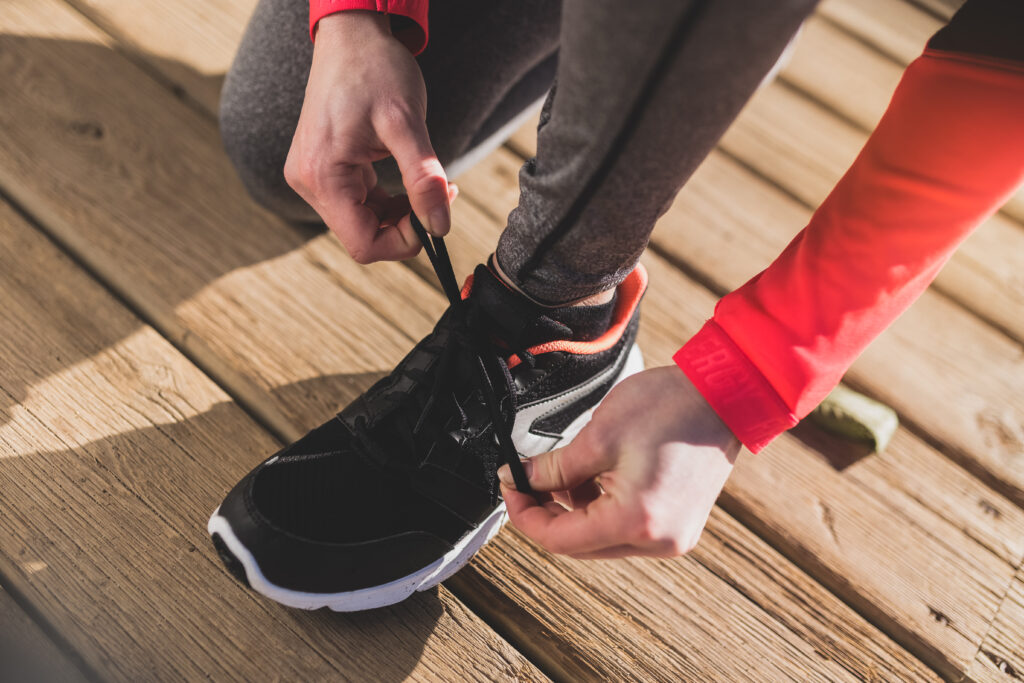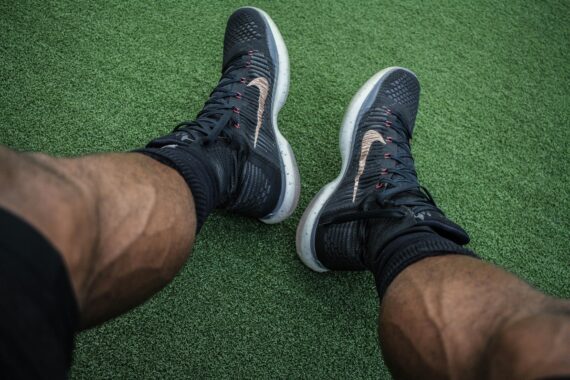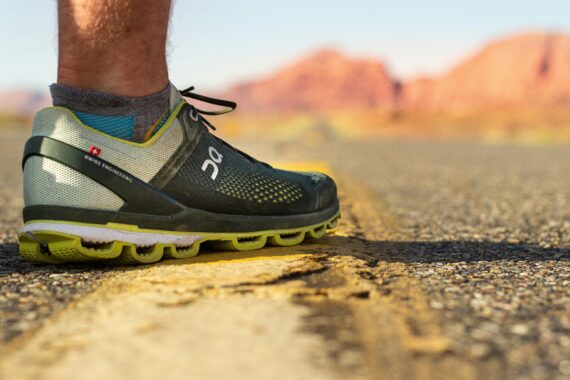Do Running Shoes Make a Difference in Running?
If you’re planning to start running or you’re already a runner, you might ask yourself, Do running shoes really make a difference? Running shoes aren’t just about style. They’re made to protect your feet, legs, and body while running. Running puts a lot of pressure on your feet, knees, and back, so wearing the right shoes can help you stay safe and comfortable. In this guide, you’ll learn why running shoes matter, what makes them different from other shoes, tips for choosing the right pair, and much more!
1. Do Running Shoes Make a Difference in Running?
Running shoes are built for the movements and impact that happen during running. Here’s why they’re important:
- Reduced Shock – They have soft padding to reduce the shock when your feet hit the ground. This protects your knees, ankles, and hips.
- Better Support – They have good support for your arches and heels, helping to prevent foot pain and injuries.
- Increased Comfort – They are made to keep you comfortable over long distances, reducing blisters and discomfort.
- Improved Stability – They help keep your feet steady, so you’re less likely to twist an ankle or trip.
2. What Are The Differences Between Running Shoes and Regular Shoes?
Running shoes are different from everyday shoes. Here’s how:
- More Cushioning: They have extra padding to absorb the impact of running, while regular shoes do not.
- More Flexibility: They are flexible in the front part of the shoe to help with natural foot movement.
- Better Support: They give special support to areas like the arch and heel, which regular shoes may not provide.
- Breathable Material: They often have mesh fabric to keep your feet cool and dry.
- Thicker Sole: Their sole is usually thicker to help with comfort and form.
3. What Are The Benefits of Running Shoes?
They can help you run better, stay comfortable, and avoid injuries. Here’s why they’re beneficial:
- Lightweight: They are made of light materials, so they won’t feel heavy or slow you down.
- Good Grip: They have specially designed soles that help you stay stable on different surfaces.
- Extra Spring: Some of them are made to give a slight “bounce” with each step, making running feel easier.
- Better Form: They help you keep good form, which is important for avoiding strain on your knees, hips, and back.
4. Do Running Shoes Make You Run Faster?
Yes, they can make you run faster. They are built to support your feet and help you move efficiently. Here’s how they help with speed:
- Lightweight Design: They are light, which makes it easier to move quickly without feeling weighed down.
- Energy Return: Some are designed to give a slight “bounce,” which helps you keep up a good pace.
- Proper Fit and Comfort: When your feet feel good, you can focus on running faster without distractions.
5. How to Choose Running Shoes?
Picking the right shoes can be tricky, but these tips can help:
- Know Your Foot Type: Do you have flat feet, normal arches, or high arches? This helps you find the right support.
- Get the Right Fit: Shoes should be fit but leave a little room at the toes for comfort.
- Consider the Surface: Different shoes work better on trails, pavement, or tracks, so pick based on where you’ll run.
- Look for Breathable Material: Mesh fabric helps keep your feet cool.
- Think About Cushioning: Some runners like more cushion, while others like a “barefoot” feel. Try both to see what’s best for you.
6. Preventing Injuries with Running Shoes
They aren’t just for comfort; they help prevent injuries too:
- Reduced Shock: Cushioning helps protect your joints and muscles.
- Arch Support: Good arch support can prevent problems like foot pain or plantar fasciitis.
- Ankle Stability: They have padding around the ankle to keep it stable and reduce twisting.
7. What Are The Types of Running Shoes?
There are different types of running shoes for different types of running:
- Road Running Shoes: Made for flat surfaces like sidewalks, these shoes are light and cushioned.
- Trail Running Shoes: Built for rough, uneven paths, these have extra grip and protection.
- Cross-Training Shoes: Multi-purpose shoes that work well for running and other activities.
8. Which Are The Top 10 Running Shoes with Prices?
If you’re looking for some popular running shoes, here’s a list along with their prices:
- Nike Air Zoom Pegasus 39 – $130
- Adidas Ultraboost 22 – $190
- Brooks Ghost 14 – $140
- Asics Gel-Kayano 29 – $160
- Hoka One One Clifton 8 – $140
- New Balance Fresh Foam 1080v12 – $160
- Saucony Endorphin Speed 3 – $170
- Puma Velocity Nitro 2 – $120
- Mizuno Wave Rider 25 – $135
- On Cloudflow – $140
9. Running Shoes and Calorie Burn
Running can help burn calories, and having a comfortable pair of running shoes can make it easier to run for longer. They make you feel better during a run, so you might burn more calories and reach your fitness goals faster.
10. Safety Tips for Running
To keep your runs safe, follow these tips:
- Replace Shoes Regularly: They wear out over time. Replace them after 300-500 miles for the best support.
- Warm Up: Always warm up before running to prepare your muscles and prevent injuries.
- Listen to Your Body: If something hurts, take a break and rest.
- Rotate Shoes: Using different pairs can make each one last longer and help reduce stress on your feet.
Conclusion
So, do running shoes make a difference in running? Yes! Running shoes help protect your feet, reduce injuries, and make running more comfortable. If you’re serious about running, investing in a good pair of running shoes can make a big difference in how you feel and perform. Whether you’re just starting or have been running for a while, having the right shoes can help you enjoy the journey.
FAQs
Q: Do running shoes make a difference in running performance?
A: Yes! Running shoes are designed to improve comfort, stability, and they absorb shock, which can improve your running performance and reduce the risk of injury.
Q: How often should I replace my running shoes?
A: It’s recommended to replace your running shoes every 300-500 miles or when you notice the cushioning and support start to wear out.
Q: Can running shoes help prevent injuries?
A; Yes, running shoes provide the right support and cushioning to help prevent injuries like shin splints, knee pain, and ankle twists.
Q: What’s the difference between running shoes and regular shoes?
A; Running shoes have extra cushioning, arch support, and a flexible design that helps absorb impact and support natural foot movement, unlike regular shoes.
Q: Do running shoes make you run faster?
A: Running shoes can make running feel easier by providing a lightweight and supportive structure, which may help you maintain a better pace over time.

